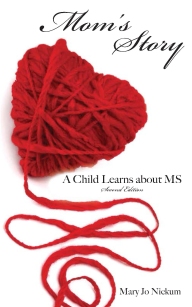Researchers Recruiting People with Primary Progressive MS for Genetics Studies – Key to finding treatment options
Primary progressive MS is characterized by steadily worsening neurologic function from the onset of the disease. There are still many gaps in the knowledge we have about what differentiates relapsing-remitting from primary progressive MS, and the underlying mechanisms of primary progressive MS. The MS Genetics Group at the University of California San Francisco is recruiting people with primary progressive MS for a research study involving a one-time blood sample donation with the goal of identifying genetic factors driving the course of the disease. The team also is looking for people without MS who are not related to serve as controls. The team hopes to identify the major genetic factors that play a role in disease presentation and progression. Please note: you do not have to be located in or travel to California to participate. Everything for the study can be done remotely and is free of charge to participants.
Rationale: Specific subtle variations in the human genome are known to play a role in determining who is susceptible to developing multiple sclerosis, and may also influence the course of the disease. People living with MS can make a difference in studies searching for these genes by donating their DNA with a blood sample. Identifying the exact location and role of MS genes could help determine who is at risk for developing the disease and can provide clues to its cause, prevention, and lead to better treatments.
Details: Once an individual has completed the initial online intake form, they will receive a call from the study coordinator to discuss details and answer any questions. The consent form and health information privacy form can be signed electronically. Participants will then be emailed a link to two additional short online surveys and sent a blood-collection kit. The kit includes everything necessary for the blood draw, which can be taken to your local Quest Diagnostics Lab and returned in a prepaid envelope to the lab at UCSF. There is no cost to participants.
Contact: To participate or request additional information, please complete a brief intake survey.
OR you may contact UCSF directly:
Clinical Research Coordinator
UCSF Multiple Sclerosis Genetic Susceptibility Project
675 Nelson Rising Lane, Suite 235A, Box 3206
San Francisco, CA 94158
Email: msdb@ucsf.edu
Toll Free Phone: 1-866-MS-Genes (1-866-674-3637) or Office Phone: (415) 502-7202
